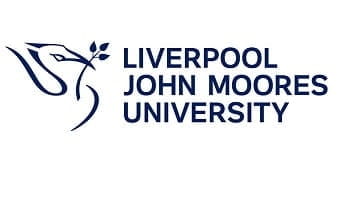Course modules
Discover the building blocks of your programme
Further guidance on modules
Modules are designated core or optional in accordance with professional body requirements, as applicable, and LJMU’s Academic Framework Regulations. Whilst you are required to study core modules, optional modules provide you with an element of choice. Their availability may vary and will be subject to meeting minimum student numbers.
Where changes to modules are necessary these will be communicated as appropriate.
Core modules
Teaching, Learning and Assessment
20 credits
20 credits
This module is designed to help staff critically reflect on and enhance their teaching, learning, and assessment practices in higher education. It covers key elements such as learning theories, effective teaching practices, content organisation, and assessment principles. This module is mapped to the Professional Standards Framework and is part of the Advance HE CPD Fellowship programmme.
The Inclusive Curriculum
20 credits
20 credits
This module aims to help staff critique and improve their skills in inclusive curriculum design and evaluation in higher education. It emphasizes the curriculum's role in inclusive practice and fosters learning design skills based on constructive alignment and universal design principles. This module is mapped to the Professional Standards Framework and is part of the Advance HE CPD Fellowship programmme. Successful completion of this module and 7001ACADEM lead to Fellowship of Advance HE.
Dissertation
60 credits
60 credits
The dissertation module allows students to thoroughly investigate a topic of personal or professional interest linked to their programme of study. It helps them advance their research skills and apply knowledge from previous modules to their research project. To undertake the dissertation, students need to have completed at least one of the 2 relevant research modules (7004ACADEM or 7006ACADEM) depending on the specific nature of the data to be analysed.
Optional Modules
Evidence Based Practice in Higher Education
20 credits
20 credits
This module is designed to develop staff capacity to critically evaluate the contribution to evidence-based practice devise, plan and evaluate change. It emphasises the importance of secondary data and Theory of Change/logic model as a framework for evidence unformed intervention.
Power, Critique and Transformation in HE
20 credits
20 credits
This module aims to provide a critical perspective of different systems of education within the context of political, cultural, social and economic influences. It also examines the sources and use of power within educational settings and investigates pedagogies for empowerment and transformation.
Academic Leadership
20 credits
20 credits
This module fosters an understanding of the role of academic leadership in enhancing professional practice. It focuses on leadership skills for academic improvement within a discipline, including team building, emotional intelligence, influencing and negotiating skills and coaching and mentoring.
Pedagogic Research in Academic Practice
20 credits
20 credits
This module aims to help staff develop a critical understanding of the design and operation of primary research associated with academic practice in higher education. It supports the development of a research plan by exploring key debates, practices, and approaches in higher education research.
Principles and Practice in Digital Education
20 credits
20 credits
The assessment portfolio aims to expose students to a wider range of ideas and literature, facilitate real-time peer review, inspire richer reflections, and transition discussions from superficial to more substantive. Thoughtful design and transparent communication with students about the rationale and benefits will be crucial for successful implementation.
Adopting a portfolio assessment approach not only has the potential to enhance student learning and engagement but also allows the teaching team to evaluate the impacts of innovative assessment designs. This aligns with the module's goal of critically exploring digital pedagogies and applying theory to online delivery practices.
Learning Analytics and AI in Higher Education
20 credits
20 credits
Learning Analytics and Artificial Intelligence are interlinked aspects of the increasingly data oriented domain of Educational Technology and the management of Teaching and Learning within Higher Education Academic practice. This module is designed to provide staff with an opportunity to critically, and whilst deploying appropriate theoretical bases, examine the use of AI and LA in Higher Education, deepening their understanding of some of the practical and policy aspects of the field and this can support and develop their practice. It will encourage them to take a balanced view on the benefits and challenges afforded by LA and AI
Career paths
Further your career prospects
LJMU has an excellent employability record with 96% (HESA 2018) of our postgraduates in work or further study six months after graduation. Our applied learning techniques and strong industry connections ensure our students are fully prepared for the workplace on graduation and understand how to apply their knowledge in a real world context.
Tuition fees and funding
Entry requirements
You will need:
Qualification requirements
Alternative qualifications considered
all applicants should have a graduate qualification or equivalent. Applicants should normally have a professional role in the support of learning in higher education. This includes lecturing staff, teaching assistants, staff in learner support roles, research staff with a substantive teaching role
Please Note: All international qualifications are subject to a qualification equivalency check.
How to apply
Securing your place at LJMU
Your university life
From accommodation and academic support to clubs and societies. Find out what LJMU has to offer.
Related Links
Talk to our students
Connect with a current LJMU student for advice and guidance on university life, courses and more.
See what our students are saying
At LJMU we want you to know you’re making the right choice by studying with us. You can see what our students are saying about their experience with us through their reviews on the following websites:
Related Links
News and views
Browse through the latest news and stories from the university










The University reserves the right to withdraw or make alterations to a course and facilities if necessary; this may be because such changes are deemed to be beneficial to students, are minor in nature and unlikely to impact negatively upon students or become necessary due to circumstances beyond the control of the University. Where this does happen, the University operates a policy of consultation, advice and support to all enrolled students affected by the proposed change to their course or module.

















